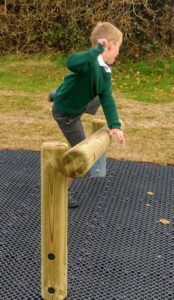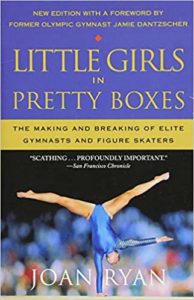Why Parkour should stay out of the Olympics

Parkour as an Olympic Sport?
The International Gymnastics Federation (FIG) has included Parkour as a new gymnastics discipline to be included in the Olympics. This is a concern for all those who enjoy the freedom of expression and creativity that is at the heart of Parkour.
Young men running and jumping through the woods is at the heart of traditional gymnastics as invented by Father Jahn in the early 1800s. Gymnastics was developed to keep young men fit in the time of war.
This Martial link was there when David Belle used the French Army’s obstacle courses to develop his fitness. His son Raymond, then applied this to the urban environment: “Parcours du combattant” became “Parcours” which is Anglicised to Parkour.
However, the commercialisation and competition dominated modern gymnastics results in a very rigid structure that relies on early specialisation and conformity. Hardly the choice of the free wheeling Parkour enthusiasts.
Too much too young
Some countries like Norway avoid competing in gymnastics in the Olympics as they realise that the early specialisation and heavy training loads required at a young age lead to greater chances of burnout, injury and drop out from the sport.
Instead, they use gymnastics as a foundation for other sports. Every child is encouraged to train in gymnastics to develop their movement skills. They don’t compete until secondary school. This is the approach we take at Excelsior Athletic Development Club

But, in many countries, including the UK, the “Little Girls in Pretty Boxes” approach to gymnastics means that young people (predominantly girls) are thrust into the competitive environment at a very young age.
The requirements to conform and practice very strict routines and look a certain way appeals to some and many “Mumagers” who can proclaim how wonderful their daughter is to other competitive parents.
The fact that there is a huge dropout from gymnastics before the age of 13 seems of little concern to the parent of the 6 year old. British Gymnastics know about this huge dropout and are constantly trying to reinvent the wheel to retain more members.
Freestyling, freerunning and freedom

One of the BG initiatives is “Freestyle Gymnastics” (which we do at our club). This was expressly marketed as “NOT PARKOUR” when launched a few years ago, in order to avoid conflict with Parkour UK
The idea was to allow more individual expression and be less formal then the competition disciplines. It was to created to attract and retain boys who strangely enough are reluctant to be marched around like mannequins.
Introducing a competition structure and becoming part of the Olympics will be problematic for Parkour enthusiasts. Money will become the major force dictating how Parkour develops and the athletes will soon find they will be told to conform to rules from above.
Those of you following the Jess Varnish case against British Cycling will have read just one example. My experience of working with NGBs is that this is the norm.

Colleagues of mine who work with snowboarders, surfers and bmx riders all have talked about problems with “athlete engagement“. This is a euphemism for people who have become highly skilled at their sport through their own endeavours, resisting being told where to go, what to eat, what to wear and how to train by support staff.
The Olympics is about money
In case you were under any other illusion, this is all about money. Sports are losing participants left, right and centre. More people want the freedom of expression and learning that activities such as climbing, surfing and parkour allow.
The Olympic movement realise this and are trying to “get down with the kids“. Gymnastics has a problem with numbers and is now trying to incorporate a movement which naturally wants to go outside and play!
Let’s hope it doesn’t stop our young people from getting out and exploring. Competition comes from within. Money and organisation will change the whole ethos of the activity.

Totally agree mate. Same with Surfing and Skateboarding and Wall Climbing etc. IOC thinks by inviting these more modern sports – (and potentially they’ll do the same with e-sports sometime in the future)- that they’ll grow their brand and ensure the long term viability of the Olympics. As I always say – “it’s no good coming up with great solution to the wrong problem”. Their problem isn’t the sports – it’s the antiquated, outdated, conservative way sport is managed and administered around the world. I’ve done some consulting with a few of the “new-sports” like Surfing recently and as soon as they got Olympic status, their National Governments immediately forced the sports into the same old same old systems that have FAILED over the past 20 years – e.g. you MUST have National Pathway, you MUST have a National High Performance Program, you MUST have a National Performance Director, you MUST have a National Testing program etc. etc. It is a joke. For some of these sports, Olympic status is a curse. They think it’s wonderful and that Olympic status means more publicity and exposure for their sport but there’s a huge price to pay with having to become part of sport’s establishment and traditional Olympic systems. Parkour should listen.
Thanks Wayne